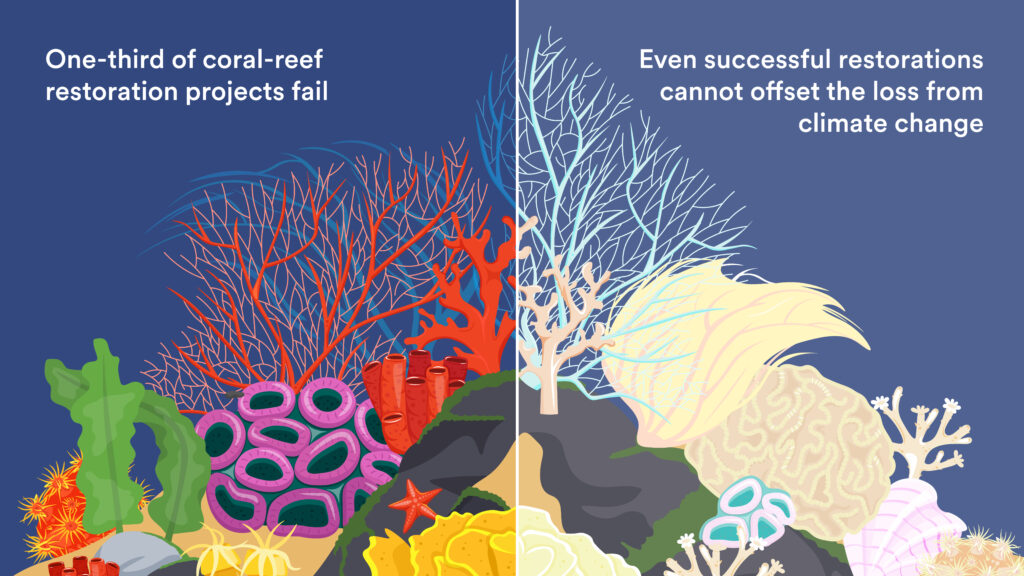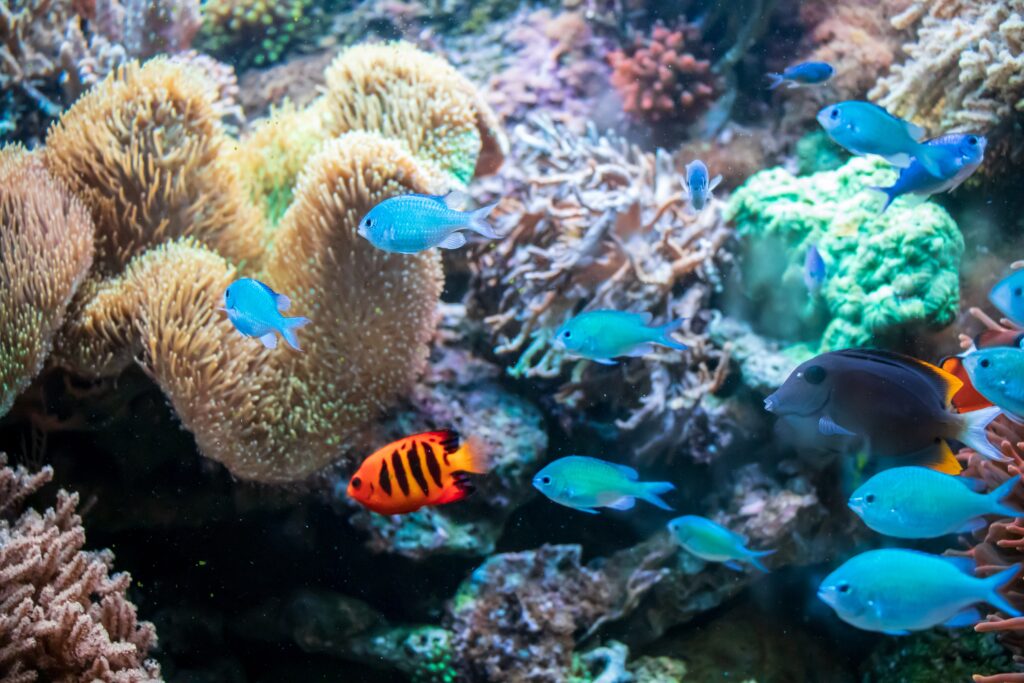New Study Sheds Light on Saving Coral Reefs
As coral bleaching and marine deaths become more widespread globally, experts are re-evaluating the benefits of restoration missions to reverse damage and protect some of the world’s most species-rich ecosystems.
Earth Day is April 22, and the ocean’s health is vital to consider for Earth Day because it covers over 70% of the planet, regulates climate, produces a significant portion of our oxygen, and supports a vast array of life.
When sea temperatures climb above average for sustained periods, corals can become bleached, meaning that they expel their symbiotic algae. If bleaching is severe, it can eventually kill the coral tissue.


Warming seas and marine heatwaves driven by climate change are the primary culprits, while overfishing and pollution are also making things worse. This has led to bleaching in iconic locations such as the Great Barrier Reef in Australia, home to the beloved clownfish – made famous by Nemo of Pixar movies.
A new study by Dr Giovanni Strona at the European Union Joint Research Centre, Clelia Mulà of the University of Western Australia, and Matthew Flinders Professor of Global Ecology Corey Bradshaw from Flinders University in Australia has examined the reasons behind the failure of these restoration efforts to deliver enhanced protections for coral reefs.
Published in open-access journal Nature Ecology and Evolution, their results show major barriers to effective interventions include the small scale of restoration programs, high costs per hectare, and the tendency to restore already compromised reefs that are highly vulnerable to future heat stresses.
“Most restoration projects only operate over several hundred or a few thousand square metres. Compared to the 14% loss and degradation of coral reefs between 2009 and 2018, equating to nearly 12,000 square kilometres, we come nowhere close to the scale of restoration that is needed to offset the losses from climate change,” says Professor Bradshaw.
The combination of adverse factors, coupled with the fact conservation efforts can target sites that don’t have the highest chance of success, means over a third of projects fail.
“This reality check should stimulate constructive debate about when and where restoration is most feasible and important. But the truth is that without stemming the pace and magnitude of climate change, we have little power to save coral reefs from massive losses over the coming century and beyond.”
The researchers say restoration failures can be for many reasons, including poor planning, unproven technologies, insufficient monitoring and subsequent heatwaves.
“Although coral restoration has the potential to be a valuable tool in certain circumstances, our research makes it clear it is not yet and might never be feasible to scale up sufficiently to have meaningful, long-term, and positive effects on coral reef ecosystems,” says Professor Bradshaw.

The research shows that coral reefs benefit more than 1 billion people globally by providing tourism dollars, food security and protection from storms and coastal erosion.
“Some estimate that over the past 40 years, the coverage of coral reefs has declined by at least 50%. As climate change continues, bleaching events and coral deaths will only become more common, with projected losses of total coral cover of more than 90% by the end of the century,” says Dr Giovanni Strona.
The research—titled “Restoration cannot be scaled up globally to save reefs from loss and degradation,” by Clelia Mulà, Corey Bradshaw, Mar Cabeza, Federica Manca, Simone Montano, and Giovanni Strona—has been published in Nature Ecology and Evolution.
To support ocean conservation for Earth Day, consider visiting websites like Oceana, The Ocean Cleanup, Ocean Conservancy, Surfrider Foundation, and NOAA’s National Ocean Service.



